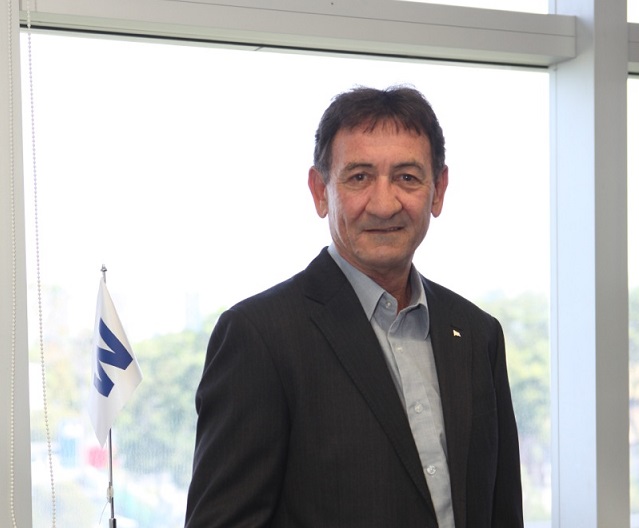The Next Generation of Ship Agencies
In an ever-fluctuating industry, there are few things that remain constant. We need vessels, crews, fuel and a whole host of services to ensure that cargos are delivered and customers satisfied. We also need ship agencies. But even they are changing fast. What does the future hold and how will agencies evolve to meet the challenges and opportunities waiting on the horizon? The Maritime Executive asked Wilhelmsen Ships Service (WSS) to gaze into its crystal ball.
In a highly fragmented segment, WSS Ships Agency is the “big daddy.” With 1,250 staff spread over 182 offices and 132 countries, the firm is uniquely positioned to deliver global insight on the trends in ship agency and the changing nature of this essential, but low-profile, activity.
We interviewed three of the company’s top regional executives – Frederic Fontarosa, WSS Director-Ships Agency Americas; Nikolai Norman, WSS Director-Ships Agency Africa, Middle East and Black Sea; and Roy Davidson, WSS Director-Ships Agency Asia Pacific – about their views on industry trends and what lies ahead for WSS and the ship agency business generally.
People Power
 Frederic Fontarosa
Frederic Fontarosa
Every time future trends and predictions are discussed, technology takes center stage. The digital age has transformed almost every sector of every industry. Surprisingly, however, technology is not top of the agenda for the WSS directors. It’s people, they believe, that will shape their future.
“Ships agency is a people business,” Frederic Fontarosa states. “High-quality people to deliver high-quality services. And the best way to do that is through building relationships.”
Fontarosa says that ships agencies need to become “extensions of their customers’ companies in ports,” explaining: “We have to understand their entire business, not just the vessel. That means agencies should build an overview of entire point-to-point trades, including the needs of the ship operators’ customers – the people they’re shipping the products or commodities for.”
He notes that WSS is already focusing on this through its Global Agent Desk.
“This means one person is appointed to be globally responsible for that shipping company,” Fontarosa explains. “This gives them the chance to build a strong relationship and get to know the customer inside out. They can have a ‘mom and pop’ style closeness, but on a global scale rather than just at one port with one ship. That agent becomes the customer’s single point of contact worldwide, driving huge efficiencies as the shipping firm no longer needs to deal with a myriad of different companies and people.
The way to conduct business, optimize operations and increase efficiency is “peer to peer,” he adds. “The ship operator focuses on transporting his cargo and outsources everything else to an agency he can trust to deliver. That would bring real benefits as we move forwards.”
Relationships That Work

For ship agencies to help vessel operators in this quest for greater efficiency, Roy Davidson believes operators should view them from an operational rather than procurement perspective.
“There’s a huge focus on cost now, and it’s difficult to see that changing in the near to mid-term future,” he states. “But the segment is on the bottom in terms of rates now, so cutting further costs would mean cutting services and people. Instead of doing that, we should be looking to work closer with all stakeholders to pinpoint the potential for process improvement.”
Like Fontarosa, Davidson sees real benefits in relationship-building. He believes agencies should challenge shipowners on the way they conduct their business, inviting them and all stakeholders through the shipping value chain to the table to discuss their areas of operation.
“A lot of the time an inefficiency could be blamed on a ships agency when a process further up the line is actually the problem. Instead of working in individual silos, we should open up the chain and share our knowledge – collaborate and find new ways of doing things. That kind of joined-up thinking would benefit everyone in port operations, increasing understanding, reducing costs and maximizing efficiency. I think that has to be a key focus for the future.”
One Supplier, One Standard
Standardization is also a popular theme among the three regional experts. In a trading environment where earnings are low, credit tight and costs high, providing one reliable level of quality services worldwide makes perfect sense.
“We see a streamlining and consolidation of the segment in the future,” Davidson remarks, stating that a staggering 85 percent of the ship agency business is still controlled by small “mom and pops.”
Fontarosa adds that, by their very nature, these businesses are not well placed to cater to global operators in search of global standards. “They don’t have the financial capability, geographical spread, or desire to uphold uniform standards. That doesn’t chime with shipping companies who want the efficiencies and peace of mind associated with guaranteed compliance, certified employees, quality assured processes, E&O insurance coverage, data availability, and modern, integrated IT systems, no matter where they are in the world.”
Nikolai Norman says that WSS is effectively working toward a goal of operating as a “one-stop shop” for the industry, with the ship agency’s offerings integrated into a broad service and product portfolio that also includes safety, spare parts, and consumables for the worldwide merchant fleet.
 Nikolai Norman
Nikolai Norman
“That puts us in a very strong position,” he says, “one that will help us take advantage of a global fleet that will no doubt grow as the population and consumer markets do.”
Trailblazing Tech
Tying the three down on the subject of technology makes for some interesting comments.
Norman says the company is committed to being “at the forefront of industry digitalization” and has a continual process of investment in back- and front-end technical platforms to unlock efficiencies and save customer costs.
Both he and Fontarosa mention the possibility of providing “real-time visibility” for customers through live mobile video feeds, potentially giving them remote eyes on, and access to, vessel loading and unloading operations and port-side activities. This could be enhanced, Norman says, by developing task-oriented apps to give operators greater control over the delivery of services from remote locations.
This kind of instant accessibility may, he argues, bring an end to email communication within the industry, which could soon be perceived as “out-dated, just like the telex or fax.”
Davidson notes that WSS is sitting on a “data goldmine”: “We capture a mass of vessel movements from all the ports throughout the world, and that gives us a huge potential for sharing valuable insights with customers.”
Fontarosa suggests that one way this data goldmine could be used is to empower better decision-making among stakeholders. He sees the possibility of live video conferencing between parties including surveyors, captains, chief officers and relevant authorities, whereby data is shared and immediate problems and challenges can be addressed.
“This could help tackle issues in real time,” he says, “connecting people, data and decision-makers worldwide.”
Davidson believes the industry needs to look beyond its traditional boundaries to access the best ideas: “If you look at the transportation of minerals in Australia, for example, it’s incredible. At some sites there are driverless, remote-controlled trucks moving iron ore 24 hours a day, seven days a week, reducing any danger of driver fatigue in what is a high-risk task. Autonomous trains have also been introduced to transport this iron ore farther for shipment from ports. These are fitted with radar, sensory equipment, and mapping technology, introducing a safer, cheaper and more efficient way to move large cargos. This is the kind of trailblazing technology that shipping, and ships agencies, can learn from.”
The Human Touch
Despite this potential for man to be replaced by machine, all three WSS directors are quick to reassert the importance of people in the future of the segment. Good people are, and will continue to be, highly prized in an area they freely admit to being “uniquely demanding.”
“This industry works non-stop,” Fontarosa says. “Vessels don’t take a break because it’s the weekend or a public holiday, so neither can we. In addition, our people are handling high-value assets, with high-value cargos, and that can be stressful.”
He adds that “It’s very challenging to attract and retain the best talent and, as society continues to evolve and people get more used to certain standards of living and comfort, that challenge is likely to intensify.”
Norman believes the size and structure of WSS can help the company in this respect. He explains: “As part of a large, global group, we are an attractive employer. We can give our employees real opportunity for progression and new development. One way we do that is through training. We invest heavily in the WW Academy and provide both global and local access to training that relates to general development and specific areas of responsibility. This goes a long way in protecting and advancing our human capital.”
Davidson concludes with the disclosure that the company is inaugurating a ships agency apprenticeship program: “There’s no ships agency school at present, and people tend to learn on the job. So this program will provide a firm foundation for development, helping to ensure that the next generation of WSS ships agency personnel is well-placed to tackle the next generation of challenges.
“We’re firmly focused on the future,” he smiles, “and the future needs of all our worldwide customers.” – MarEx
The opinions expressed herein are the author's and not necessarily those of The Maritime Executive.
